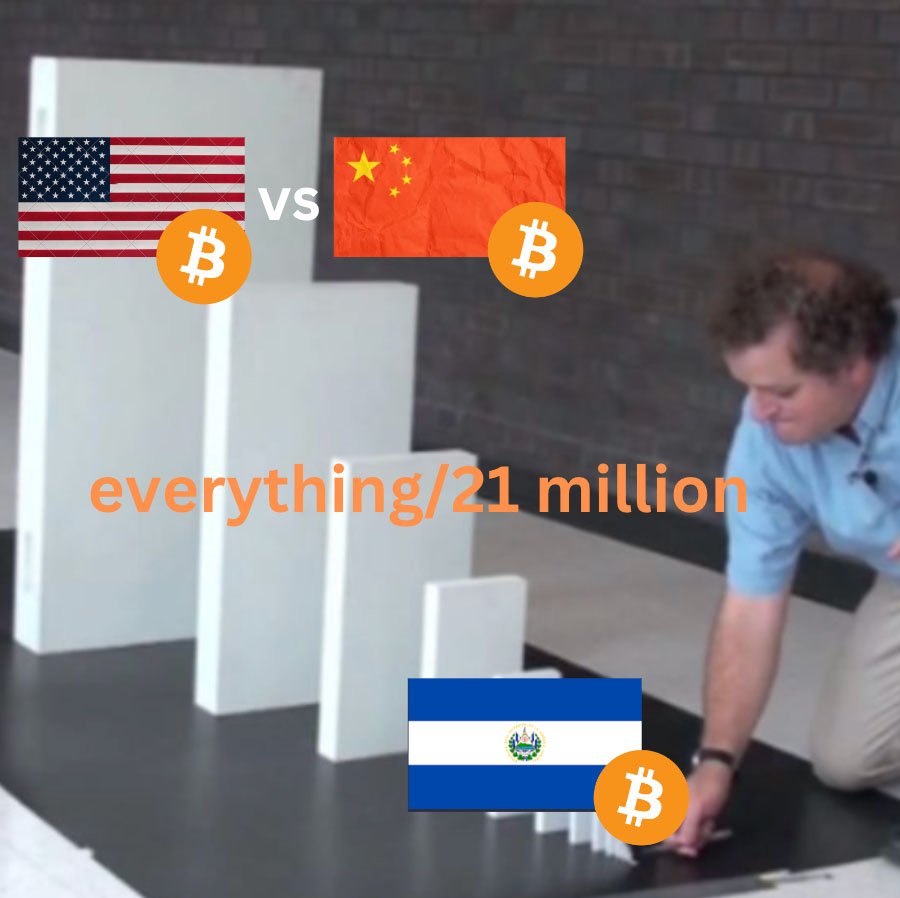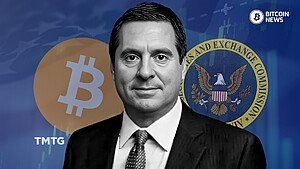All fiat money is doomed to die. With hyperinflation on the horizon and the world headed to the brink of financial collapse, Bitcoin emerges as a beacon of hope for countries drowning in debt and starved for options.
In an exclusive interview with BitcoinNews, Samson Mow, CEO of JAN3 and former chief strategy officer at Blockstream, painted a compelling picture of how Bitcoin could fundamentally reshape the future of nation-states and redefine the social contract between governments and their citizens.
Mow and the team at JAN3 are focused on “providing tools for individuals, enterprises, and nation-states to benefit from a free and open financial system based on Bitcoin.”
Mow is on record noting, “Bitcoin bonds are the perfect solution for most countries,” drawing an intriguing parallel to MicroStrategy’s pioneering corporate strategy.
“It’s really just the MicroStrategy playbook for nation-states. Sovereign debt instead of corporate debt, and you use that to buy Bitcoin.”
This strategy is more than just wealth accumulation; it represents a paradigm shift in national economic policy. Countries that embrace this approach could gain a significant advantage over those who hesitate to adopt Bitcoin.
As Mow puts it, “Fiat is anti-hope, Bitcoin is hope.” This simple yet powerful statement encapsulates Bitcoin’s potential to offer nations a path to financial security and increased economic growth.
The game theory of Bitcoin adoption for nations is compelling. Early adopters stand to gain a significant advantage. A domino effect starts to happen as other countries rush to catch up, setting the stage for what Samson has deemed the omega candle.
The first movers will reap the greatest rewards, while those who hesitate, risk being left in the dust of the new economic order.

As more countries adopt Bitcoin, several dynamics come into play:
- Increased Scarcity: With each nation adding bitcoin to its reserves, the available supply diminishes, potentially driving up value for early adopters.
- Legitimacy Boost: Widespread national adoption lends further credibility to Bitcoin, potentially accelerating its global acceptance.
- Economic Pressure: Non-adopting countries may face increasing economic pressure as Bitcoin-friendly nations gain financial advantages and start demanding bitcoin for payment.
- Geopolitical Shifts: The balance of global economic power could tilt towards nations with significant bitcoin holdings.
The adoption of Bitcoin by nation-states represents more than a simple diversification of national reserves.
It signifies a shift towards a new form of economic sovereignty, one that is resistant to the inflationary pressures and geopolitical manipulations that have long plagued fiat currencies.
Moreover, the transparent and decentralized nature of Bitcoin could usher in a new era of fiscal responsibility and governmental accountability.
The immutable ledger of Bitcoin transactions could also make national spending more transparent, potentially reducing corruption and increasing public trust in government financial operations. A great example of this is what El Salvador has done with their Bitcoin treasury website.
One of the most revolutionary aspects of Bitcoin’s potential impact lies in its ability to transform the relationship between governments and citizens.
Mow envisions a future where the current income tax model evolves into a system more akin to homeowners associations (HOAs), shifting incentives to give individuals more control over their finances.
The ease of moving and storing wealth in bitcoin increases citizens’ mobility, allowing them to more readily relocate to jurisdictions that offer a more favorable balance of taxes and services.
This doesn’t guarantee a utopian “opt-in” system of governance, but it does increase the competitive pressure on governments to provide value to their citizens.
The result may not be a perfect system but rather a more dynamic one, where governments must continually justify their tax policies and demonstrate the value of their services to retain their tax base.
Every reasonable person desires a government that provides efficient governance.
The decentralized and permissionless nature of Bitcoin poses significant challenges to traditional methods of financial control. Unlike conventional assets, Bitcoin private keys cannot be frozen or seized without the owner’s cooperation.
This fundamental characteristic creates a new reality of financial sovereignty that will alter the balance of power between states and individuals.
Unlike real estate, gold, guns, and other physical property, there is no guarantee you can take someone’s bitcoin if you go to war and win.
This shift in power dynamics incentivizes cooperation over coercion. Nations that resort to excessive coercion may find themselves at a long-term disadvantage in this new paradigm.
One nation that has grown tremendously in the past few decades, but is now struggling in many ways is China.
Mow highlights the country’s massive real estate crisis and declining population. He asked:
“How do you get out of it? Only Bitcoin. You need hope for the future. You can’t grow your way out of these problems.”
Many in China are starting to agree with Mow that Bitcoin has potential as a solution to the complex economic challenges many countries across the globe are dealing with.
China banned Bitcoin mining in 2021, causing a temporary drop in hash rate that quickly recovered to new all-time highs, but now they seem to be reconsidering.
This change comes as a current U.S. Presidential candidate, Donald Trump, expresses concern about China potentially taking the lead over the U.S. when it comes to Bitcoin.
Mow noted that the most important factor for successfully orange-pilling a nation-state is having a leader at the helm who is willing to take bold risks and understands Bitcoin.
Such a leader is a country’s best bet for adopting this new form of money. Of course, adoption comes in many forms, and Samson acknowledges that the recent launch of Bitcoin ETFs, while breaking records, didn’t trigger the “omega candle” he had anticipated.
This tempered expectation was partly due to the lingering effects of the FTX fraud and the massive sell pressures experienced by GBTC.
Nevertheless, Mow remains incredibly bullish on bitcoin’s long-term prospects. With global liquidity increasing, government debt compounding, and institutional giants like BlackRock embracing Bitcoin, he believes a million-dollar bitcoin is not just possible but probable.
Whether this milestone is reached this year as Mow expects or takes a decade, he cautions that those selling now may “miss out dearly.”
As we stand at the crossroads of new economic paradigms, Bitcoin offers a radical alternative to the status quo. It promises a future where financial sovereignty is not just a privilege of nations but a right of individuals.
While challenges remain, the potential for Bitcoin to reshape our world is undeniable.
In Samson Mow’s words, “You need Bitcoin for the future.” As nation-states grapple with mounting crises, this digital beacon of hope may well light the way forward, ushering in a new era of economic freedom and governmental accountability.
Mow & his team at JAN3 are the creators of the fully open-source Aqua wallet. It’s a Bitcoin wallet worth trying so you can have control over your bitcoin in a wallet that makes using Bitcoin easy.










